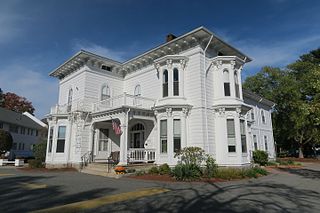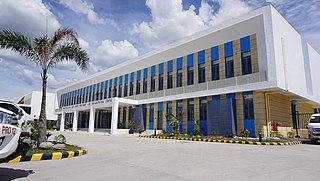Applied psychology is the use of psychological methods and findings of scientific psychology to solve practical problems of human and animal behavior and experience. Educational and organizational psychology, business management, law, health, product design, ergonomics, behavioural psychology, psychology of motivation, psychoanalysis, neuropsychology, psychiatry and mental health are just a few of the areas that have been influenced by the application of psychological principles and scientific findings. Some of the areas of applied psychology include counseling psychology, industrial and organizational psychology, engineering psychology, occupational health psychology, legal psychology, school psychology, sports psychology, community psychology, neuropsychology, medical psychology and clinical psychology, evolutionary psychology, human factors, forensic psychology and traffic psychology. In addition, a number of specialized areas in the general area of psychology have applied branches. However, the lines between sub-branch specializations and major applied psychology categories are often mixed or in some cases blurred. For example, a human factors psychologist might use a cognitive psychology theory. This could be described as human factor psychology or as applied cognitive psychology. When applied psychology is used in the treatment of behavioral disorders there are many experimental approaches to try and treat an individual. This type of psychology can be found in many of the subbranches in other fields of psychology.
Special education is the practice of educating students in a way that accommodates their individual differences, disabilities, and special needs. This involves the individually planned and systematically monitored arrangement of teaching procedures, adapted equipment and materials, and accessible settings. These interventions are designed to help individuals with special needs achieve a higher level of personal self-sufficiency and success in school and in their community, which may not be available if the student were only given access to a typical classroom education.
A Sudbury school is a type of school, usually for the K-12 age range, where students have complete responsibility for their own education, and the school is run by a direct democracy in which students and staff are equal citizens. Students use their time however they wish, and learn as a by-product of ordinary experience rather than through coursework. There is no predetermined educational syllabus, prescriptive curriculum or standardized instruction. This is a form of democratic education. Daniel Greenberg, one of the founders of the original Sudbury Model school, writes that the two things that distinguish a Sudbury Model school are that everyone is treated equally and that there is no authority other than that granted by the consent of the governed.

An extracurricular activity (ECA) or extra academic activity (EAA) or cultural activities is an activity, performed by students, that falls outside the realm of the normal curriculum of school, college or university education. Such activities are generally voluntary (as opposed to mandatory), social, philanthropic, and often involve others of the same age. Students and staff direct these activities under faculty sponsorship, although student-led initiatives, such as independent newspapers, are very common. However, sometimes the school principals and teachers also bring in these activities in the school among the students.
A behavior modification facility is a residential educational and treatment institution enrolling adolescents who are perceived as displaying antisocial behavior, in an attempt to alter their conduct.
School social work is a specialized area of social work concerned with the psychosocial functioning of students to promote and maintain their health and well-being while assisting students to access their academic potential. The School Social Work Association of America defines school social workers as "trained mental health professionals who can assist with mental health concerns, behavioral concerns, positive behavioral support, academic, and classroom support, consultation with teachers, parents, and administrators as well as provide individual and group counseling/therapy."

Adventure therapy is a form of psychotherapy created as early as the 1960s. It is influenced by a variety of learning and psychological theories. Experiential education is the underlying philosophy.

The Learning Center for the Deaf (TLC) is a Framingham, Massachusetts-based non-profit organization and school serving deaf and hard-of-hearing children and adults. The mission of The Learning Center for the Deaf is to ensure that all deaf and hard of hearing children and adults thrive by having the knowledge, opportunity and power to design the future of their choice.

A residential treatment center (RTC), sometimes called a rehab, is a live-in health care facility providing therapy for substance use disorders, mental illness, or other behavioral problems. Residential treatment may be considered the "last-ditch" approach to treating abnormal psychology or psychopathology.
After-school activities, also known as after-school programs or after-school care, started in the early 1900s mainly just as supervision of students after the final school bell. Today, after-school programs do much more. There is a focus on helping students with school work but can be beneficial to students in other ways. An after-school program, today, will not limit its focus on academics but with a holistic sense of helping the student population. An after-school activity is any organized program that youth or adult learner voluntary can participate in outside of the traditional school day. Some programs are run by a primary or secondary school, while others are run by externally funded non-profit or commercial organizations. After-school youth programs can occur inside a school building or elsewhere in the community, for instance at a community center, church, library, or park. After-school activities are a cornerstone of concerted cultivation, which is a style of parenting that emphasizes children gaining leadership experience and social skills through participating in organized activities. Such children are believed by proponents to be more successful in later life, while others consider too many activities to indicate overparenting. While some research has shown that structured after-school programs can lead to better test scores, improved homework completion, and higher grades, further research has questioned the effectiveness of after-school programs at improving youth outcomes such as externalizing behavior and school attendance. Additionally, certain activities or programs have made strides in closing the achievement gap, or the gap in academic performance between white students and students of color as measured by standardized tests. Though the existence of after-school activities is relatively universal, different countries implement after-school activities differently, causing after-school activities to vary on a global scale.
Eagle Hill School is an independently operated, private boarding school serving students in grades 8-12 with attention deficit hyperactivity disorder, dyslexia, and other learning disabilities in Hardwick, Massachusetts, which was founded in 1967. Two other schools with the same name are located in Greenwich and Southport, Connecticut.
A professional learning community (PLC) is a method to foster collaborative learning among colleagues within a particular work environment or field. It is often used in schools as a way to organize teachers into working groups of practice-based professional learning.
Psychology encompasses a vast domain, and includes many different approaches to the study of mental processes and behavior. Below are the major areas of inquiry that taken together constitute psychology. A comprehensive list of the sub-fields and areas within psychology can be found at the list of psychology topics and list of psychology disciplines.
Concept-Oriented Reading Instruction (CORI) was developed in 1993 by Dr. John T. Guthrie with a team of elementary teachers and graduate students. The project designed and implemented a framework of conceptually oriented reading instruction to improve students' amount and breadth of reading, intrinsic motivations for reading, and strategies of search and comprehension. The framework emphasized five phases of reading instruction in a content domain: observing and personalizing, searching and retrieving, comprehending and integrating, communicating to others, and interacting with peers to construct meaning. CORI instruction was contrasted to experience-based teaching and strategy instruction in terms of its support for motivational and cognitive development.
The Ivy Street School is a school that offers multiple programs aimed at providing the skills and healing for neurodivergent youth to thrive. Through its educational, residential, and community-based programs, Ivy Street supports adolescents and young adults with disabilities by strengthening healing, deepening community, building skills and accelerating motivation for a successful adulthood.
Robert L. Selman is an American-born educational psychologist and perspective-taking theorist who specializes in adolescent social development. He is currently a professor of Education and Human Development at the Harvard Graduate School of Education, and a professor of psychology in Medicine at Harvard University. He is also known as the author of the 1980s G.I. Joe public service announcements.
The Free School is the oldest independent, inner-city alternative school in the United States. Founded by Mary Leue in 1969 based on the English Summerhill School philosophy, the free school lets students learn at their own pace. It has no grades, tests, or firm schedule: students design their own daily plans for learning. The school is self-governed through a weekly, democratic all-school meeting run by students in Robert's Rules. Students and staff alike receive one equal vote apiece. Unlike Summerhill-style schools, the Free School is a day school that serves predominantly working-class children. Nearly 80 percent of the school is eligible for reduced-price meals in the public schools. About 60 students between the ages of three and fourteen attend, and are staffed by six full-time teachers and a number of volunteers.

The term learning environment can refer to an educational approach, cultural context, or physical setting in which teaching and learning occur. The term is commonly used as a more definitive alternative to "classroom", but it typically refers to the context of educational philosophy or knowledge experienced by the student and may also encompass a variety of learning cultures—its presiding ethos and characteristics, how individuals interact, governing structures, and philosophy. In a societal sense, learning environment may refer to the culture of the population it serves and of their location. Learning environments are highly diverse in use, learning styles, organization, and educational institution. The culture and context of a place or organization includes such factors as a way of thinking, behaving, or working, also known as organizational culture. For a learning environment such as an educational institution, it also includes such factors as operational characteristics of the instructors, instructional group, or institution; the philosophy or knowledge experienced by the student and may also encompass a variety of learning cultures—its presiding ethos and characteristics, how individuals interact, governing structures, and philosophy in learning styles and pedagogies used; and the societal culture of where the learning is occurring. Although physical environments do not determine educational activities, there is evidence of a relationship between school settings and the activities that take place there.
School climate refers to the quality and character of school life. It has been described as "the heart and soul of the school ... that essence of a school that leads a child, a teacher, and an administrator to love the school and to look forward to being there each school day." A positive school climate helps people feel socially, emotionally and physically safe in schools. It includes students', parents' and school personnel's norms, beliefs, relationships, teaching and learning practices, as well as organizational and structural features of the school. According to the National School Climate Council, a sustainable, positive school climate promotes students' academic and social emotional development.





